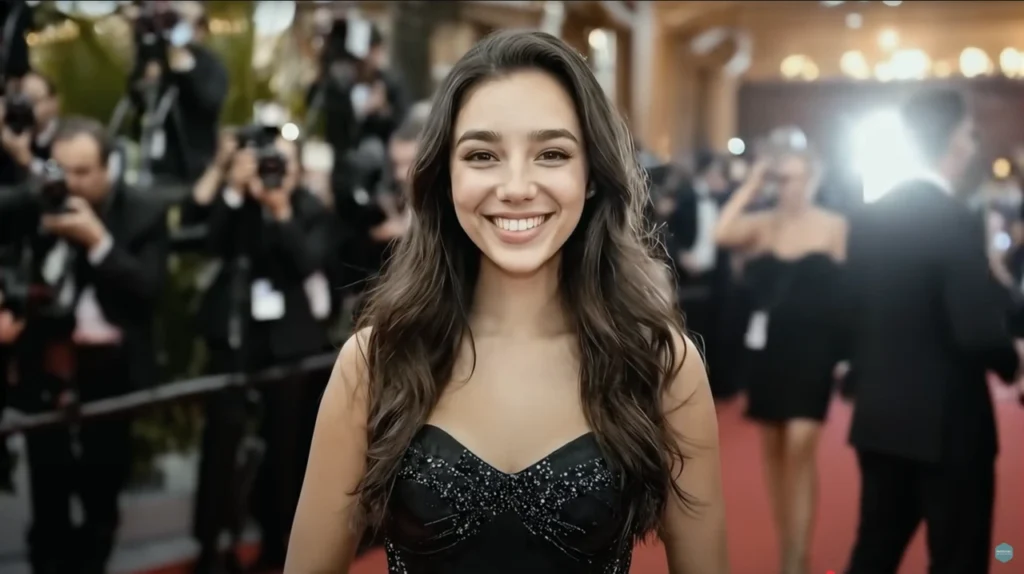LOS ANGELES — Hollywood’s simmering unease over artificial intelligence reignited this week after the debut of Tilly Norwood, an AI generated actor created by Dutch comedian Eline Van der Velden, sparked backlash from stars including Emily Blunt, Natasha Lyonne, and Whoopi Goldberg.
The digital persona, designed to mimic a young actress with girl next door vibes, gained traction online for posting comedic sketches and mock interviews.
But industry unions and A list performers swiftly condemned the experiment, warning it undermines human artistry and the livelihoods of working actors.
This is not an actor it’s a character generated by a computer program trained on human performances, the Screen Actors Guild American Federation of Television and Radio Artists (SAG-AFTRA) said in a statement. “It has no lived experience, no emotion, and no soul.”
The emergence of Tilly Norwood comes nearly two years after Hollywood endured twin labor strikes by writers and actors demanding stronger protections against AI.
The 2023 strikes, which shut down much of the entertainment industry for months, ended with contractual safeguards meant to prevent studios from replacing performers with synthetic replicas.
Van der Velden, best known for her comedic work in the Netherlands, said she created Norwood as a creative experiment rather than a substitute for human talent. Tilly is a piece of art, she wrote on Instagram. “Like writing a role or drawing a character, she is part of her own genre.”

Yet the rollout has reignited fears that digital replicas could erode opportunities for living actors. Hollywood’s powerful unions have warned that agencies and studios working with AI generated performers could breach contractual agreements and face legal scrutiny.
Using Tilly Norwood in productions doesn’t solve a problem it creates one, SAG AFTRA said. It risks using stolen performances and threatens the value of human creativity.
Industry experts say the controversy reflects broader anxieties about automation in creative fields. Dr. Laura Chen, a media studies professor at UCLA, said the uproar over the AI actor underscores “a cultural crossroads” for entertainment.
Hollywood has always adapted to new technology from sound to CGI but AI represents something fundamentally different, Chen said. “It’s not just a tool. It can impersonate human expression, and that blurs ethical lines.”
Artificial intelligence systems, like the one used to create Norwood, are typically trained on massive datasets of human performances. Critics argue this process exploits creative labor without consent.
Actors’ likenesses and emotional nuances are being scraped to feed these models, said Martin Diaz, a labor attorney specializing in entertainment law. “Without strict oversight, AI performers could become a form of creative plagiarism.”
A 2024 survey by the American Film Institute found that 68% of US audiences prefer films featuring human actors over fully AI generated performers. Meanwhile, 74% of working actors said they fear AI will reduce available roles within the next decade.
By contrast, some studios view AI as a cost saving innovation. According to a Deloitte analysis, synthetic actors could reduce production expenses by up to 25% for commercials and digital content. However, experts caution that consumer trust remains a critical barrier.
AI generated content lacks the authenticity audiences crave, said Priya Nair, a senior analyst at Media Futures Group. “The public still wants human storytelling not algorithmic simulations.”
On the streets of Los Angeles, reactions were mixed. “I get why actors are upset it feels like erasing their humanity,” said Carlos Ramirez, a film student attending a SAG AFTRA rally. But as a tech enthusiast, I also think AI could open new storytelling frontiers if used ethically.
Others were more skeptical. “I watched one of Tilly’s videos, and it just felt… hollow,” said Melissa Grant, a longtime moviegoer from Burbank. “There’s something missing when you know it’s not a real person.”
Even within Hollywood, responses have ranged from alarm to curiosity. Emily Blunt, speaking on a podcast with Variety, reacted with visible unease. “That’s an AI? Good Lord, we’re screwed,” she said. “Please stop taking away our human connection.”
Natasha Lyonne, known for Russian Doll and Orange Is the New Black, urged collective action. “Any talent agency that engages in this should be boycotted by all guilds,” she said.
Whoopi Goldberg, co host of The View, offered a more pragmatic view. “AI can’t replicate what makes us human our movements, our emotions, our presence,” she said. Audiences can tell the difference.
Van der Velden’s studio, Particle6, is reportedly developing an AI talent agency named Xicoia to manage synthetic performers.
During a recent summit in Zurich, she claimed major studios are already exploring partnerships with AI actors and hinted at high profile announcements in the coming months.
Analysts predict the entertainment industry will face increasing pressure to define boundaries for AI use. The Norwood controversy could become a test case, said Diaz, the labor attorney. “How the unions and studios respond will set the precedent for decades.”
Policymakers are also watching closely. The European Union’s forthcoming AI Act may require disclosure when AI generated content appears in public media, a rule that could influence global entertainment standards.
For now, Tilly Norwood remains an online curiosity a digital persona walking the line between art and automation. But her debut has rekindled urgent questions about the role of AI in storytelling and the future of human creativity in an increasingly synthetic world.
As Emily Blunt and others voice alarm, Hollywood finds itself confronting an old dilemma in a new form: how to balance innovation with integrity, and technology with the timeless power of human emotion.



